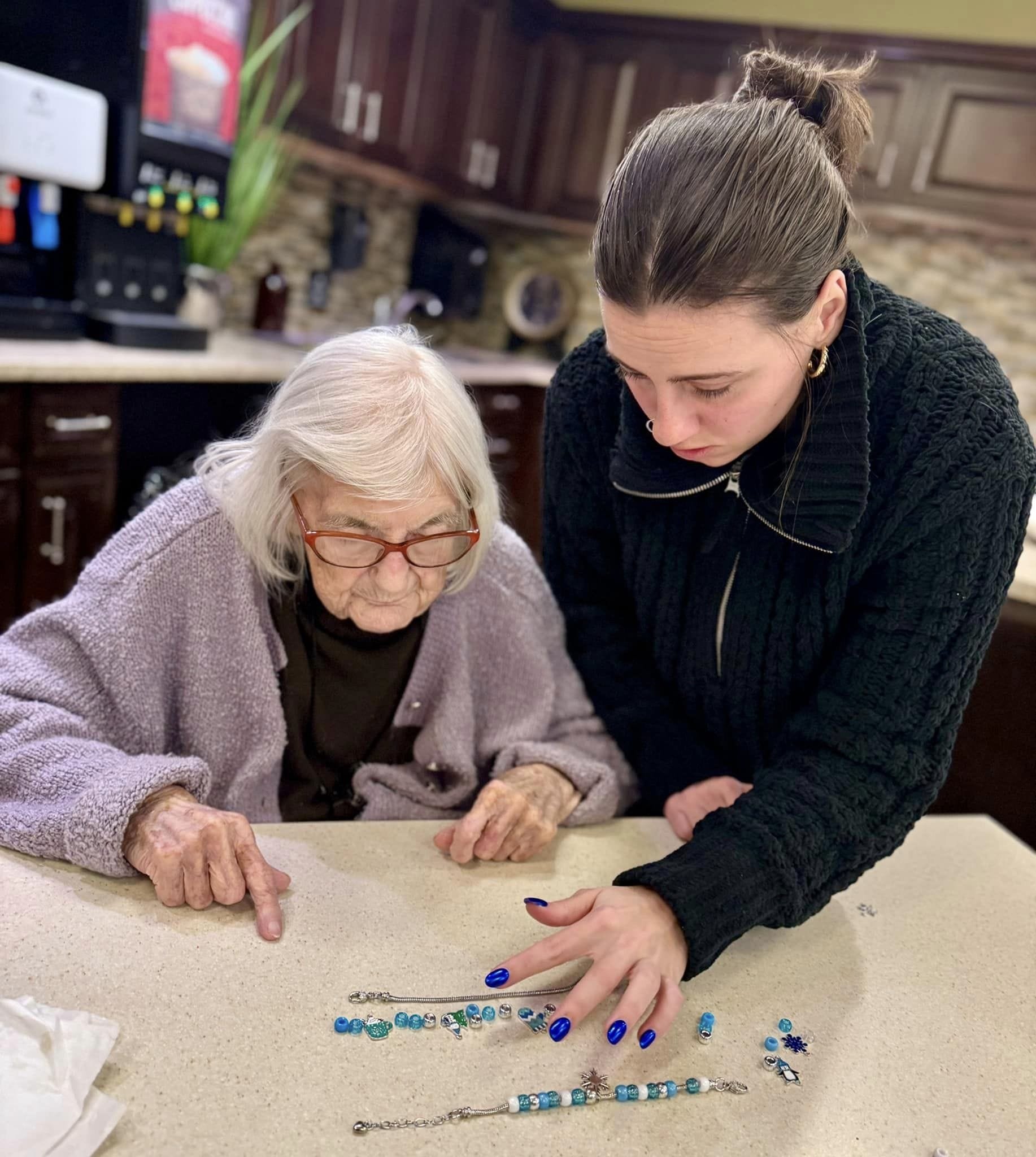Creating Safe and Comfy Areas with Alzheimers Care Charlotte Programs
Creating Safe and Comfy Areas with Alzheimers Care Charlotte Programs
Blog Article
Thoughtful Alzheimer's Care for Your Enjoyed Ones
Recognizing the emotional and psychological needs of individuals affected by this problem is vital in improving their high quality of life. As we explore the various strategies and techniques that can change caregiving into a more thoughtful experience, it comes to be clear that the journey is as much about the caretaker as it is regarding the individual with Alzheimer's.
Recognizing Alzheimer's Illness
Alzheimer's disease is a dynamic neurodegenerative condition that mainly affects cognitive feature, resulting in memory loss, damaged thinking, and changes in behavior. It is one of the most usual form of dementia, making up 60-80% of all situations. The illness typically shows up in individuals aged 65 and older, although early-onset Alzheimer's can occur in younger people.
The pathophysiology of Alzheimer's includes the build-up of amyloid plaques and neurofibrillary tangles in the mind, leading to neuronal degeneration and synaptic loss. These adjustments interrupt interaction between brain cells, progressively hindering cognitive capabilities and daily functioning. Early signs and symptoms may consist of problem keeping in mind current events and difficulties in analytic, which can escalate to disorientation and difficulty with language.
As the illness breakthroughs, people may exhibit profound memory shortages, complication about time and place, and difficulty acknowledging liked ones. Behavior modifications, consisting of withdrawal, anxiety, and stress and anxiety, may likewise happen. Understanding the medical progression of Alzheimer's is important for caregivers and doctor, as it notifies efficient administration techniques and interventions tailored to the demands of people impacted by this incapacitating condition.
The Importance of Compassionate Care
Thoughtful treatment is vital in supporting individuals with Alzheimer's condition, as it dramatically boosts their top quality of life. This strategy focuses on the emotional and psychological well-being of people, cultivating an atmosphere that promotes dignity, respect, and understanding. People with Alzheimer's commonly experience complication, aggravation, and anxiety, which can be eased through thoughtful interactions.
Compassion in caregiving not only aids in acknowledging the unique requirements of each individual however additionally enhances the caregiver-patient partnership. When caregivers approach their functions with compassion, they produce a secure area where clients really feel valued and comprehended, which can reduce behavior difficulties connected with the illness. This encouraging atmosphere encourages much better interaction and interaction, facilitating a much more reliable feedback to the care supplied.
Moreover, compassionate care prolongs past the patient; it likewise includes assistance for family members. Caregivers that exercise compassion are extra furnished to address the emotional worry dealt with by enjoyed ones, providing reassurance and assistance with a difficult journey. Eventually, the value of thoughtful treatment hinges on its capacity to change the caregiving experience, bring about boosted end results for both people with Alzheimer's and their family members.
Practical Caregiving Approaches
Reliable caregiving for people with Alzheimer's illness needs functional methods that attend to the special difficulties presented by the condition. Among the primary techniques is establishing a consistent daily regimen, which can supply structure and experience, lowering anxiety for both the caregiver and the person. Caretakers should likewise streamline tasks by click over here damaging them down into smaller, convenient actions, consequently enhancing the individual's feeling of success and reducing irritation.
Communication is another essential element; caretakers ought to use clear, basic language and preserve eye get in touch with to cultivate understanding. Using visual hints, such as photos or labels, can further assist understanding and navigating in the environment.
Safety and security is extremely important. Adapting the space to remove threats-- such as mounting or protecting rugs grab bars-- can help prevent crashes. In addition, caregivers need to encourage independence by enabling individuals to take part in acquainted tasks, which can reinforce self-confidence and advertise wellness.
Emotional Assistance Strategies
Emotional well-being is a crucial part of treatment for people with Alzheimer's illness, as it straight impacts their quality of life. Alzheimers Care Charlotte. Giving emotional support strategies can significantly enhance their day-to-day experiences and foster a sense of safety and security and belonging
One effective method is energetic listening, which entails offering complete interest to the individual, recognizing their sensations, and reacting with compassion. This method assists the individual feel valued and understood, lowering feelings of seclusion or irritation. Furthermore, using validation treatment can be beneficial; instead of dealing with mistaken beliefs, caregivers can attest the person's feelings and experiences, advertising a soothing setting.
Participating in reminiscence therapy is another powerful technique, allowing people to share memories, sensations, and stories linked with their past. This not just boosts cognitive feature yet likewise strengthens psychological connections. Incorporating acquainted music or art can also evoke positive emotions and spark joyous interactions.
Moreover, making certain routine physical touch, such as holding hands or gentle hugs, can provide comfort and confidence, strengthening psychological bonds. These techniques, when constantly applied, can develop a nurturing ambience that sustains the psychological wellness of people with Alzheimer's, boosting their overall wellness.
Developing a Helpful Setting

Firstly, consider the physical More Bonuses layout of the living area. Clutter-free locations, familiar furniture plans, and distinct paths can minimize complication and advertise mobility. Making use of calming colors and adequate illumination can further boost the ambience, making it more welcoming and less daunting.
Secondly, uniformity is crucial. Maintaining a foreseeable daily regimen assists people with Alzheimer's feeling a lot more safe and secure. Acquainted tasks, regular dish times, and scheduled social communications can substantially minimize anxiousness and disorientation.
Additionally, sensory components play a vital function. Incorporating acquainted aromas, songs, and tactile items can stimulate favorable memories and promote involvement. Individualizing the area with valued photographs and significant things can additionally promote a feeling of identity.
Verdict
Caring Alzheimer's care substantially enhances the top quality of life for individuals affected by this dynamic condition. By focusing on emotional Discover More health and implementing efficient caregiving strategies, caregivers can cultivate an atmosphere that promotes dignity and belonging. Strategies such as energetic listening and developing constant routines serve to reduce stress and anxiety while reinforcing the caregiver-patient partnership. Eventually, this approach not only supplies important convenience and support but additionally empowers individuals to browse the intricacies of Alzheimer's with dignity and grace.
As we discover the different strategies and strategies that can transform caregiving into a much more compassionate experience, it comes to be clear that the journey is as much concerning the caregiver as it is concerning the individual with Alzheimer's.

Thoughtful care is necessary in sustaining individuals with Alzheimer's illness, as it dramatically enhances their high quality of life - Alzheimers Care Charlotte. Ultimately, the relevance of compassionate care exists in its capacity to transform the caregiving experience, leading to improved results for both people with Alzheimer's and their families
Compassionate Alzheimer's care substantially boosts the quality of life for people affected by this progressive condition.
Report this page